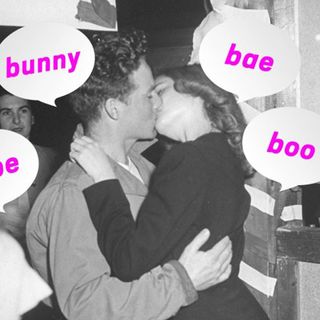I like to indulge myself. If there’s a strange smell, I’ll go and take a nostril-full to see just how much it can freak me out. If I’m watching a depressing movie and feel a crying jag coming, I’ll think of other sad things so the sorrow can hit with full force. If I’m dreading a stomach drop while on a roller coaster, I’ll scream or throw my arms out so the feeling is maximized. These reactions are considered ‘masochistic’ by many — a masochist is someone who derives pleasure, sexual and otherwise, from feeling any kind of physical or mental pain. While the term may incite mostly sexual associations, there is a certain kind of masochism that most of us indulge in through our individual quirks; one that shows wanting to feel a negative emotion in small doses is not necessarily a bad thing: benign masochism.
Benign masochism is defined as “enjoying initially negative experiences that the body (brain) falsely interprets as threatening,” according to “Glad to Be Sad,” a paper that explores the theory, published in the journal Judgment and Decision Making. In it, University of Pennsylvania psychologist Paul Rozin coined the term, explaining it more fully as “this realization that the body has been fooled, and that there is no real danger, leads to pleasure derived from ‘mind over body.’” Researchers say benign masochism stems from the pleasure derived when a combination of positive and negative feelings are felt in response to a threat that is considered benign, such as a spicy pepper, a sad song, a funky smell, or a horror movie. The “conflict” that arises when these positive and negative emotions occur simultaneously is what gives rise to the desire to keep indulging in the activity, according to the paper.
For something to be deemed benign masochism, the activity at hand needs to incite so little negative emotion as to be tolerable; if the negative emotion reaches or surpasses into intolerable, it won’t be worthy of being indulged in, researchers say. In the paper, Rozin and colleagues identified 29 activities — related to sadness, fear, disgust — that would incite pleasure, or a “hedonic reversal” in people. These included watching sad movies or listening to sad music, eating spicy foods, pinching pimples, going on roller coasters, getting a deep tissue massage, or being physically exhausted.
Related on The Swaddle:
The Psychology of Sexual Kink
The degree to which study subjects — 390 men and women — feel this “hedonic reversal” also varies, researchers found. For example, there are two factors at play while watching a sad movie: the degree of enjoyment derived from the film, and the level of empathy you feel toward the characters. The more you’re invested in the characters, the more empathy you feel, and the sadder you might get. But if there is a semblance of distance maintained with the activity, then realizing the stimulus is artificial may help in understanding the sadness is inconsequential or harmless, while also maximizing enjoyment. This process of realization is what makes benign masochism a habit for most — when you realize it was just a movie, the sadness starts to be seen from a distance, which reduces its effectiveness, and the activity starts to look attractive for another time.
“Benign masochism essentially provides a mechanism for why the ‘meta-experience’ involved in distancing is pleasant. This requires some sort of ‘cognitive override,’ and should be distinctively human,” the paper adds. Same goes for any kind of sensation-seeking behavior, especially those that invoke fear. Or it can be biological, as Kendra Pierre-Louis unpacks on Aeon: eating spicy foods, which is its own YouTube video genre, can be “the body’s natural processes [that] trigger internal opiates in the face of pain: chili-pepper eaters are essentially drugging themselves.”
The researchers concluded that “people tend to like their physiological reactions to innately negative experiences. These reactions are presumably part of the body’s defensive responses to reduce the negative experience (and the bodily harm it presumably portends). Examples are eye tearing and sweating in response to chili pepper, and pounding heart associated with fear. Enjoying crying in response to sad experiences is probably another example.”
Related on The Swaddle:
Why People Are Creeped Out By Clowns, According to Science
But not all negative experiences can lead to a hedonic reversal, researchers added — for example: nausea. Any kind of physiological function that throws physical well-being into question cannot translate to benign masochism, as its benign-ness isn’t certain.
Benign masochism also manifests when indulging habits that we know are harmful in the long term, such as when smoking cigarettes and drinking alcohol. The lack of short-term effects tricks the brain into thinking these activities are safe for the time being, which makes indulging in a supposedly dangerous or forbidden activity thrilling. As with anything, benign masochism can easily become a habit. But when it’s an actually dangerous habit, it could become self-sabotage.




